#Olympic sustainability
Explore tagged Tumblr posts
Text
‘Anti-Sex’ Beds Are Returning for the 2024 Paris Olympics
The Cardboard ‘Anti-Sex’ Beds Are Returning for the 2024 Paris Olympics Floor Practice: Athletes might need to practice their “floor-sleeping” skills just in case. Paris, France — The cardboard beds from the 2020 Tokyo Games are making their highly anticipated return to the Olympic Village for the 2024 Paris Games. These eco-friendly sleeping arrangements, which first captured the internet’s…
#anti-sex beds#athlete accommodation#athlete comfort#athlete reactions#cardboard beds#eco-friendly beds#Evy Leibfarth#Olympic Games#Olympic sustainability#Olympic Village#Paris 2024#Paris Olympics#Paul Chelimo#recyclable materials#Rhys McClenaghan#sleep tips#sustainable sleeping#TikTok tested#Tom Daley#viral beds
0 notes
Text
constantly wondering about the people who believe the olympic beds are cardboard because they don't want the athletes having sex
like....are you ok?
genuinely, i mean it's clear you've never read a romance novel in your life, but are you ok? how's your sex life? because let me tell you, there's more to life than missionary on a mattress, you poor misguided soul
the positions these incredibly fit people could do it in, like??? wow, i'm talking biceps flexing, your entire weight held against the wall, i'm talking in the shower, i'm talking there's a site called archive of our—
#it's called sustainability obviously#is there an olympic fic coming your way? maybe#but that's not the point#the point is grow an imagination my god#paris 2024#paris olympics#olympics#olympic fic#ao3#ao3 fanfic#ao3 writer
36 notes
·
View notes
Text
















#Sustainable Materials#Los Angeles Lakers Association Edition 2022/23#Men's Nike Dri-FIT NBA Swingman Jersey#$120#Los Angeles Lakers Icon Edition 2022/23#$79.97#33% off#LeBron XXII “Crown Jewel”#Basketball Shoes#$180#“AMERICA'S KING” tee#2 Store Reviews#from $46.24#American Royalty Heads Into Battle For A Final Time on The World’s Biggest Stage#The 2024 Paris Olympics!#KobeBryant#VinceCarter#LakersNation#WeTheNorth#NBAIcons#BasketballLegends#MambaMentality#RaptorsFans#WelcomeCollection#HandDrawnArt#NBAArt#LegendaryCollab#ThrowbackNBA#BasketballCulture#VintageNBA
14 notes
·
View notes
Photo

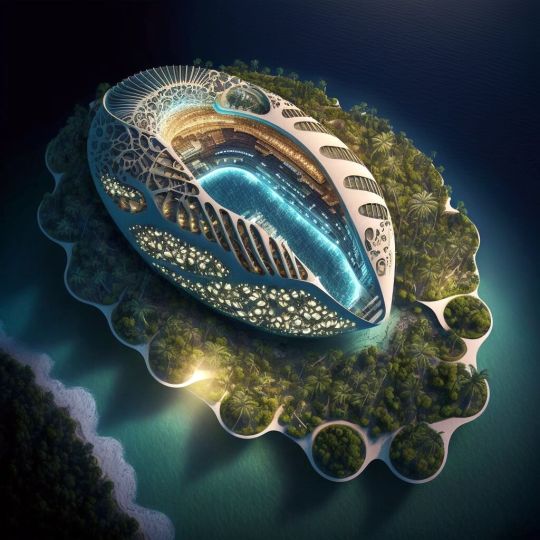
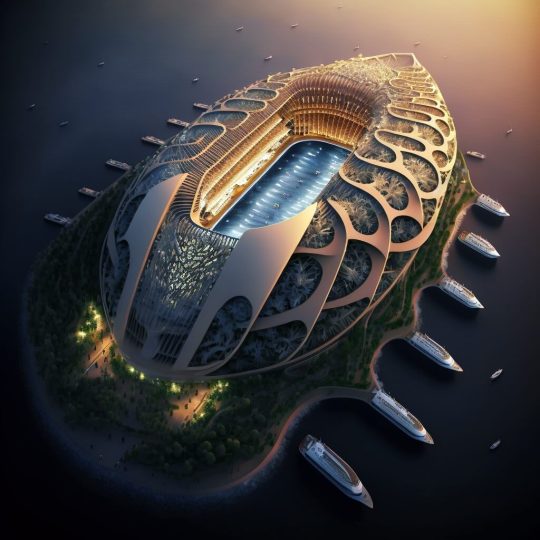
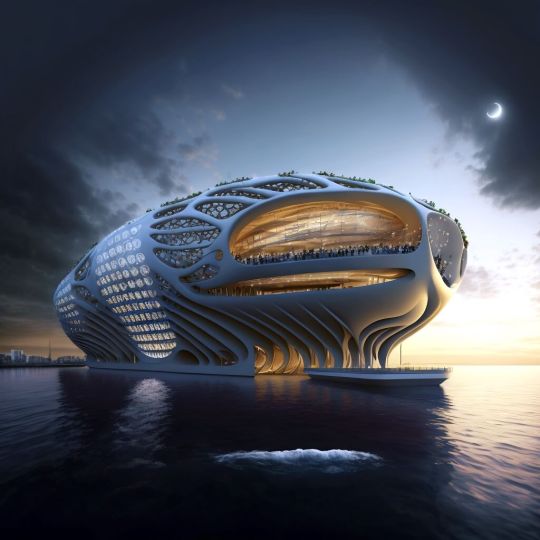



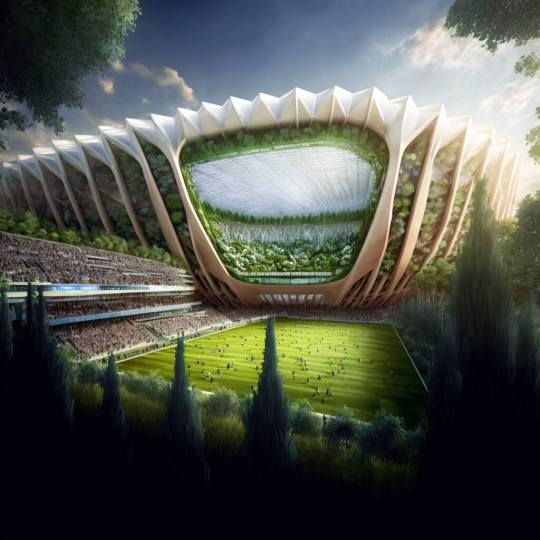
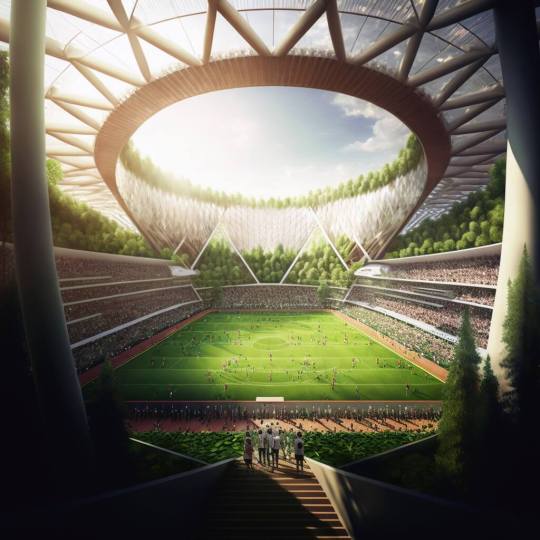

“OCEANIUMS” by Vincent Callebaut Architectures,
Rather than perpetually building new stadiums for each new World Cup and Olympic Games, Vincent Callebaut Architectures propose to build cultural and sports hubs intended for nomadism at sea.
Half boat, half stadium, these low-carbon community hubs would navigate thanks to renewable energies by using solar radiation and the strength of the prevailing winds, as well as the cold ocean currents of Labrador and the warm Gulf Stream. I
n this nomadic vision of new sporting and cultural practices, it is no longer the supporters who go to obsolete stadiums but sustainable and ecological stadiums that go to the supporters.
These Oceaniums, true stadiums of the oceans, would be built using only biosourced and recycled materials such as solid wood, recycled aluminum, green algae and plastic waste from the 7th continent concentrated in the five oceanic gyres. This plastic waste would become new construction materials feeding 3D printers connected to human-orchestrated artificial intelligence processors.
The development of a multitude of algorithms and especially the predictive learning offered by AI and 3D printing make it an essential tool for limiting human risks on these future augmented construction sites.
A Biomimetic Generation of Floating and Sustainable Stadiums,
#art#design#conceptual#stadium#world cup#oceanium#vincent callebaut#render#cgiart#olympic games#football cup#qatar22#sports#hub#sea#ocean#travels#recycling#sustainability#ecology#artificial intelligence#3Dprint#biometric#floating#sports hub#cultural hub#futuristic
119 notes
·
View notes
Text
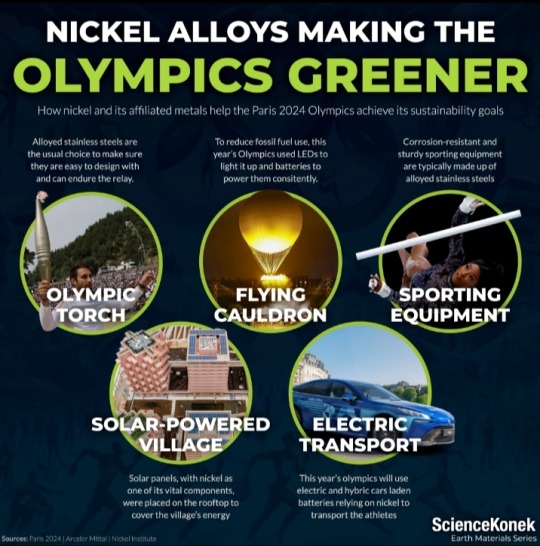
𝗧𝗢𝗪𝗔𝗥𝗗𝗦 𝗚𝗥𝗘𝗘𝗡𝗘𝗥 𝗢𝗟𝗬𝗠𝗣𝗜𝗖𝗦! 🏟️
Achieving greener Olympic games is not an overnight feat nor a simple design.
It involves a lot of materials from the Earth, such as nickel alloys, to make the Paris 2024 Olympics a sustainable event! 🔎
#2024 Paris Olympics#2024 Summer Olympics#Paris 2024#Olympic Games#Olympics#nickel alloys#sustainability#flying cauldron#solar power#electric vehicles#olympic village
4 notes
·
View notes
Text
Nazis and Holocaust Exceptionalism
Re: this very good post but I didn’t want to derail it so I made my own post instead.
I’m trying to find a way to articulate this more fluently but at its bare bones I guess what I’m thinking is that, especially in USAmerican culture, the Holocaust and Nazis are exceptional examples of genocide. As in, they’re uniquely horrible* and the most horrible. And that makes comparisons to the Holocaust and Nazis an exercise in dehumanization instead of an exercise of political and social analysis.
(*per the original post ALL genocides are uniquely horrible and tragic)
That exceptionalism - that the Nazis were THE worst people in history, the genocide of the Jewish people was THE worst genocide to ever occur - dehumanizes both the Nazis and the Jews. And that’s a dangerous precedent to set.
For one, treating Nazis (and by extension Neo-Nazis today) as these inhuman, incomprehensible monsters distances them from the human reality that made them. It erases the centuries of antisemitism and xenophobia in Europe, the economic factors leveraged to enhance and inflame those deep rooted biases. It hides how white nationalists today take advantage of socially isolated and inherently biased young men. Which makes it easy to think you could never do something so horrible, so monstrous - you’re not a monster like them, after all. When in reality you too are a person with biases and social frustrations that can be leveraged by others for personal gain.
Additionally, this exceptionalism dehumanizes the Jewish people, in a very different but still awful way. They’re given this air of mysticism, rarity and supernatural strength. How amazing that they survived at all - how high the pedestal for a people who were nearly destroyed but endured in spite of it all. I recognize a similar pattern in the treatment of indigenous peoples in the US - their morality is inherently superior because of the horrors they survived, their religion is ‘more pure’ for having survived, but they’re also held to a much higher standard than others because of this. They’re both inhumanly perfect and destined to be torn down from that pedestal at the first sign of humanity.
I’m sure there’s better articulated essays on the above phenomenon but for the sake of this argument I think the above is sufficient. Because in USAmerican culture the Holocaust and Nazis are exceptional - not just unique. Which makes comparisons between genocides reduce the humanity of all parties involved by drawing a line from Nazis to modern actors, from the Jewish people of the Holocaust to modern victims.
It’s not that comparison should be discouraged - there are facets of similarity worth exploring in disenfranchisement, dehumanization, and how social and political anxieties are warped to indefensible atrocities in the name of those fears. And it’s only natural for USAmericans to first think of the Holocaust given the strong association between genocide as a concept and the Holocaust in the public mind - but the space the Holocaust occupies in the public consciousness is so deeply dehumanized and mysticized that those comparisons are used as shortcuts to ‘x is a monster acting in its evil nature and y is an innocent lamb incapable of acting for itself’ instead of as constructive analysis of how historic biases and modern fears are used by political forces to achieve economic and social goals, however heinous those may be.
*I’m not a historian or philosopher, nor do I profess any professional study of the topics here. I study trees and bugs for a living. I’m happy to engage in productive conversation regarding these topics. I will block you if you’re an asshole though.
#ra speaks#personal#genocide#holocaust#nazis#current events#‘you’re not using x word right’ thank you for telling me!#‘so you’re saying we should kill all [x] people???’ completely unrelated to the post so you’re just being an asshole and I’ll block you#this is about how comparing tragedies and oppression Olympics is not a sustainable or productive use of time and energy#all tragedies are unique. the urge to label one as The Worst is natural but pointless and doing so#only clouds your ability to accurately identify patterns and differences between tragedies.#there is no ‘better’ form of slavery or genocide. you can acknowledge differences without ranking (explicitly or not)#the lived trauma pain and horror of others.
6 notes
·
View notes
Text
Guys, stop spreading this bullshit. The beds aren't anti-sex. They're just eco-friendly. They are providing free condoms and facial shields. What IS pure evil is the lack of AC.
i think the olympics trying to stop athletes from having sex with each other is just purely evil. imagine you've honed your body through devotion to a physical craft for most of your life, and then you get to go and compete with rivals from all around the world who have done the same thing. and you're gonna stop them from fucking?
7K notes
·
View notes
Text
Calacus Monthly Hit & Miss – Imogen Grant
Every month we look at the best and worst communicators in the sports world from the last few weeks.
IMOGEN GRANT
At Calacus, we have long celebrated and underlined the importance of sport to be a force for good in society.
It’s not always easy for current athletes to use their profile to communicate about good causes as much as perhaps they should – and when they put words into action, it can lead to criticism if their form has a dip, as we have seen with Marcus Rashford, whose initiatives and promotion of support for under-privileged children has resulted in as much criticism as praise.
We know that sports people lend their names to charities and some teams make visits and appearances to hospitals and other worthwhile causes.
But it’s still the case that far too few are making the time while competing to speak out and support good causes that their profiles can promote.
This summer, Imogen Grant became an Olympic champion at Paris 2024 when she won the women’s lightweight double sculls with team mate Emily Craig.
She became a doctor this summer as well, starting her first foundation year as a doctor at Wexham Park Hospital just three days after the Closing Ceremony, with hospital staff giving her a guard of honour when she started work.
But it’s her passion for the nation’s health and the environment that sets Grant apart.
“I am a normal person who can do extraordinary things,” Grant, said in a newspaper interview recently.
“I follow what I love and try to speak up about things I am passionate about – whether it is getting people up doing sports or campaigning for our river and water quality in the UK.”
Speaking to Calacus, she added: “More athletes should feel empowered to share their voice on issues they are passionate about. Ultimately, elite sport can be very selfish and cut-throat – it takes a lot of time and money to achieve what we do, and I believe we have a responsibility to give back to society in return.
“For me personally, it's also very fulfilling. I am a whole person, being an athlete is just part of my identity, and having balance by working on other projects I care a lot about helps when training is hard and I am tired.
“Elite athletes, especially in popular sports like football, cricket, F1, rugby, have some of the largest public followings on the planet. The impact of any of those athletes asking for something to change is huge, and it bypasses a lot of politicking to achieve so much.”
Grant started rowing when she was studying at Trinity College, Cambridge, where she became a triple Blue, winning three Boat Races including two in record time but has seen the water quality in rivers deteriorate in the last decade.
She was awarded the BBC Green Sport Awards Athlete of the Year accolade and explained the impact that she has seen first-hand to changes to our environment.
"Physically experiencing so many of the changes we have seen during the climate crisis - flooding, inclement weather, hot weather, really freezing weather, unbelievable rains and storms - as I am trying to train has really opened my eyes to the impact the climate crisis is having, on me directly and the entire world," she told BBC Sport.
“I've been rowing for 10 years. I have seen the changes in the water. I have ridden past floating nappies, seen used tampons floating and hanging in the trees on the sides of the bank, and I've seen dead fish. Seeing the degradation of our waterways has been really difficult."
Grant was instrumental in the launch of the Clean Water Sport Alliance earlier this year and added: “Rivers feed so much of the rest of the landscape, and the rest of the wildlife. If you can get the rivers right, you can get the fields and the parks right and make towns and villages healthier and happier.
"As an athlete, I know that I have a platform and I have a passion, but I haven't always had the knowledge and the nuts and bolts," she said.
"Working with the Rivers Trust, I feel like I have learned so much and I am so much better equipped to talk about the things I am passionate about.
"I know enough to know what I am talking about and make a real difference. Knowledge is absolutely power."
In September, she was one of just two athletes - along with beach volleyball player Lina Taylor - to win an International Olympic Committee (IOC) Climate Action Award for 2024.
She now wants to encourage more people to get involved with tackling climate change.
"It is important to remember that a little bit is better than not at all," Grant said. "The climate crisis is here and it can feel really doom and gloom because it is really urgent. But we are sportspeople, we love an underdog and I just think sport is the right place to try and champion this. I don't think we are out of hope yet, we have still got time to make a difference."
She added: “So far, a lot of the change I have instigated has been a the personal or small group level, which builds momentum. I think that small changes are just as important as the larger changes, as it can prove that something is achievable.
“However, my next goal is to instigate wider, legislative, change. Solving the climate crisis requires laws to be passed, and penalties to be handed out to those doing the wrong thing. My long term focus is to help push for these sort of initiatives.”
Global recognition has come for Grant, who was also named among the winners of the International Olympic Committee’s (IOC) Climate Action Awards 2024.
Winning the Award alongside Bulgarian beach volleyball player Lina Taylor – Grant was honoured for her role in the launch of the Clean Water Sport Alliance to improve river health and water quality.
She played a key role in implementing new initiatives to enhance the sustainability of British Rowing’s National Training Centre in Caversham, such as composting food waste, recycling plastic, and conducting regular water quality tests, as well as inspiring people to participate in water-testing campaigns and initiatives.
She explained: “Sport is such a team effort, and so is sustainability. I am so grateful to the amazing people and organisations who have helped me speak up and use my athlete's voice for more than just sport. I hope to continue inspiring others to take action, both on and off the field of play.”
IOC President Thomas Bach added: “This year’s winners of the IOC Climate Action Awards show that the Olympic Movement is taking its responsibilities seriously: reducing our impact, while inspiring others to take action.
“We hope these efforts inspire others – in sport and beyond – to join the collective effort to address one of the toughest challenges our world is facing today.”
Addressing those issues requires a blend of coverage in traditional and social media and Grant told Calacus: “Media is more fragmented than before, and it is not just traditional media that holds sway any more. I think that sometimes the media prefers to focus on the shock stories, the negatives, and it can be frustrating to try to bring attention to issues that are actually improving because of the dedication of many. I would love to see more reporting of athletes doing the right thing, not just when they win or lose big.
“My social media was the main way I started testing the waters (excuse the pun) to see how my opinions and actions would land. It built my confidence up to a level where I now feel like I rely on it less to try and make change because I now have the connections that I formed taken into conferences, meetings, marches and more.”
One of those opportunities came at the Labour Party Conference earlier this autumn, where Grant told delegates how important exercise can be for the health of the nation.
She said: “Too many people are like me. They think sport isn’t for them for one reason or another.
“Maybe they try the sports that are available in their schools or their local clubs and it just doesn’t quite light that spark. For some it’s the cost, the petrol to drive to practice. Maybe their nearest facilities are too far away. Maybe the facilities have been run down and there aren’t enough volunteers to coach.
“And for some of them, there isn’t the pathway either. They can’t see what they want to achieve, even if they’re dreaming of it. We need to make sure that that miracle cure is available to as many people, adults and children across the nation.
“Almost 40% of adults in this country don’t meet the bare minimum standards for physical activity. Just 30 minutes of walking or equivalent, five times a week – almost 40%.
“If physical activity were a drug, it would be called a miracle cure for how effective it is and we need to make sure that that miracle cure is available to as many people, adults and children across the nation.
“So that’s why sport transforms. It’s good for our physical health, it’s good for our mental health, and it’s good for our communities as well. It’s why grassroots facilities are so vital to be a place where children and adults can go to do something other than stress or study or work.”
#Imogen Grant#GB Rowing#Paris 2024#Olympic gold#sustainability in sport#Keir Starmer#Labour Party Conference#Water pollution#Rivers Trust#Cambridge University
0 notes
Text
I told my mom a gold medal was just an empty cup
#my mom is really into the Olympics and the para Olympics#cars is my life apparently#I feel like the la ones should have chocolate coin medals because California#idk it’s more sustainable or something
0 notes
Text
Paris 2024: A Tech-Powered Green Revolution

As everyone's eyes are on Paris since the Olympic Games kicked off on Friday, we couldn't help but wonder about the sustainability game the city is playing to celebrate this special event.
Imagine a world where stadiums are powered by renewable energy, electric vehicles transport athletes, and AI-driven systems efficiently manage crowds. The Paris 2024 Olympics will celebrate athletic prowess and demonstrate innovation's transformative power in combating climate change.
Advanced technologies that will redefine the Olympic experience are at the heart of this green revolution. Picture walking into a stadium where energy use, and waste management are meticulously optimized for minimal environmental impact. Visualize a transportation network of electric buses and smart mobility solutions that make getting around efficient and eco-friendly. Consider athletes wearing the latest sustainable wearable technology, enhancing performance while reducing their carbon footprint.
During our last Coditude chit-chat, several questions emerged. How exactly are smart stadiums setting new standards in energy efficiency? In what ways is sustainable transportation reshaping mobility for both athletes and spectators? How are advanced wearables and data analytics optimizing athlete performance while minimizing environmental impact? And, importantly, how will these initiatives leave a lasting legacy for future urban development?
Discover right now right here the technological advancements driving Paris 2024's sustainability goals. Let's learn more about this tech-powered green revolution and envision a future where technology and sustainability go hand in hand.
Smart Stadiums: Eco-Friendly, Energy-Efficient Venues
Renewable Energy Integration
The transformation of traditional stadiums into eco-friendly, energy-efficient venues begins with integrating renewable energy sources. Paris 2024 is set to utilize solar panels, wind turbines, and bioenergy systems to power stadiums, significantly reducing reliance on fossil fuels.
Solar Panels
Stade de France, among other venues, will be equipped with advanced photovoltaic panels capable of generating a substantial portion of the stadium's energy needs. According to the Paris 2024 Organizing Committee, these panels are expected to produce enough electricity to power thousands of homes annually, significantly reducing carbon emissions.
Wind Turbines
Small-scale wind turbines will be installed around the Olympic Village and stadium perimeters, further harnessing wind energy to supplement the power supply. These turbines are designed to operate efficiently even in urban environments with varying wind conditions.
Bioenergy Systems
Organic waste from stadiums and the Olympic Village will be converted into biogas, providing a renewable energy source for heating and electricity. This system reduces waste and creates a sustainable energy production and consumption loop.
Waste Management Systems
Innovative waste management systems are crucial in minimizing the Games' environmental footprint.
Smart Bins
Equipped with sensors, these bins can sort waste automatically and notify collection teams when full, ensuring efficient waste segregation and recycling. Pierre-Olivier Beckers-Vieujant, chair of the IOC's Sustainability and Legacy Commission, says:
"Smart waste management is a game-changer for large events, significantly reducing the volume of waste that ends up in landfills."
Composting Units
Organic waste from food and biodegradable materials will be processed on-site, producing compost that can be used for local agricultural purposes. This initiative not only reduces landfill waste but also supports local food production.
Smart Crowd Management
Managing large crowds sustainably is another challenge being addressed through technology.
AI-Powered Systems
Artificial intelligence will monitor crowd movements, optimizing the flow of people to reduce congestion and enhance safety. This system also minimizes energy usage by adjusting lighting and ventilation based on real-time crowd density.
"AI-driven crowd management will not only improve the spectator experience but also ensure that our energy consumption is as efficient as possible."
Tony Estanguet, President of the Paris 2024 Organizing Committee
Mobile Applications
Spectators will use mobile apps for real-time updates on the best routes, public transport schedules, and facility information, reducing unnecessary movement and associated energy consumption. These apps will be integral in guiding spectators to their destinations in the most efficient manner possible.
Sustainable Transportation: Reducing the Carbon Footprint
Electric Vehicles (EVs)
The Paris 2024 Games will see a significant deployment of electric vehicles to reduce emissions.
Fleet of EVs
A large fleet of electric buses and cars powered by renewable energy sources will be used for athletes and official transportation. This initiative aims to reduce the carbon emissions typically associated with large events.
"Our goal is to make Paris 2024 the greenest Olympics yet, and electric vehicles play a crucial role in that vision."
- Anne Hidalgo, Mayor of Paris
Charging Infrastructure
Advanced charging stations powered by solar and wind energy will be strategically placed throughout the city, ensuring the EVs are always ready for use. These stations will be accessible to the public post-games, promoting long-term sustainable transport.
Public Transport Optimization
Optimizing public transport is essential for reducing the carbon footprint of spectators.
Smart Public Transit
Real-time data analytics will optimize public transport routes and schedules, ensuring efficient human movement with minimal environmental impact. This system will dynamically adjust to the flow of passengers, minimizing wait times and energy consumption.
Green Trains and Buses
Public transport vehicles, including electric buses and hydrogen-powered trains, will be upgraded to eco-friendly models, reducing emissions. These green vehicles are expected to reduce the Games' overall carbon footprint significantly.
Smart Mobility Solutions
Smart mobility solutions will be pivotal in enhancing transportation efficiency during the Games.
Bike-Sharing Programs
Extensive bike-sharing networks with electric and conventional bikes will be available, promoting zero-emission travel. These networks will be integrated with public transport systems, offering a seamless travel experience for spectators and residents alike.
Carpooling Apps
Mobile apps will facilitate carpooling among spectators, reducing the number of vehicles on the road and lowering emissions. These apps will match riders with similar destinations, optimizing vehicle occupancy and reducing traffic congestion.
Athlete Performance and Sustainability
Wearable Technology
Wearable technology will enhance athlete performance and contribute to sustainability efforts.
Performance Monitoring
Wearable devices will monitor athletes' vitals and performance metrics in real-time, allowing for optimized training schedules that reduce the need for excessive travel. These devices, equipped with advanced sensors, provide detailed insights into an athlete's condition, enabling more efficient and targeted training regimens.
Eco-Friendly Materials
The wearables will be made from sustainable materials, minimizing their environmental impact. These materials include biodegradable polymers and recycled components, ensuring that the production and disposal of these devices have a minimal ecological footprint.
Data Analytics
Data analytics will be crucial in balancing athlete performance and sustainability.
Training Optimization
Advanced data analytics will create optimized training programs, reducing the need for travel and excessive resource consumption. By analyzing large datasets, coaches can tailor training programs to maximize efficiency and minimize environmental impact.
Resource Management
Analytics will ensure that every resource is used wisely, helping facilities operate smoothly and without waste. Training grounds will be scheduled more effectively, equipment will be utilized to its fullest potential, and support services will be managed efficiently, all to cut down on unnecessary resource use. Focusing on optimal resource management will help guarantee a sustainable and efficient environment for everyone involved.
Legacy of Innovation: A Blueprint for Sustainable Urban Development
Sustainable Urban Planning
The technological advancements of Paris 2024 will leave a lasting legacy, serving as a blueprint for sustainable urban development.
Eco-Friendly Infrastructure
The infrastructure built for the Games will be designed with sustainability in mind, including energy-efficient buildings, green spaces, and sustainable water management systems. These structures will serve as models for future developments, demonstrating how cities can grow sustainably.
Smart City Technologies
Innovations like smart grids, IoT-based waste management, and AI-powered traffic systems will be integrated into the city's fabric, promoting long-term sustainability. These technologies will ensure that the urban environment remains efficient, resilient, and eco-friendly.
Broader Technological Advancements
The technology implemented for the Paris Olympics will inspire broader advancements in various sectors.
Green Technologies
The success of renewable energy and smart systems during the Games will encourage their adoption in other cities and industries. These technologies could revolutionize how we approach energy consumption and environmental conservation.
Sustainable Practices
The emphasis on sustainability will foster a culture of eco-friendly practices, influencing everything from corporate strategies to individual behaviors. This cultural shift towards sustainability will impact how society views and interacts with the environment.
Concluding Thoughts: Observing how Paris 2024 showcases its tech game.
The Paris 2024 Olympics will not just be a celebration of sports but a testament to the power of technology in driving sustainability. From smart stadiums and sustainable transportation to optimizing athlete performance and setting a blueprint for future developments, the Games will highlight how innovation can effectively address climate change challenges.
As Tony Estanguet, President of the Paris 2024 Organizing Committee, aptly put it:
"The Paris 2024 Olympics will be a milestone in showcasing how technology and sustainability can work together to create a better future for all."
This event will set new standards for sporting events and inspire a global movement towards a greener, more sustainable future. By focusing on these technological solutions, we can see that the Paris 2024 Olympics are poised to be a landmark event in the intersection of technology and sustainability, showcasing the potential for innovation to create a better, more sustainable world.
We'd love to know your thoughts and got a bunch of questions for you!
Join the conversation as we look forward to the Paris 2024 Olympics and its pioneering approach to sustainability through technology:
Smart Stadiums
What other innovative technologies could further enhance the sustainability of large venues and events? How do you envision these technologies evolving in the future?
Sustainable Transportation
How can cities worldwide adopt the transportation solutions implemented for Paris 2024 to reduce their carbon footprints? What challenges do you foresee in this transition, and how can they be overcome?
Athlete Performance and Sustainability
In what ways do you think wearable technology and data analytics can be further leveraged to balance high-performance sports with environmental sustainability? Are there specific sports or activities that could particularly benefit from these advancements?
Legacy of Innovation
How can Paris 2024's technological innovations serve as a global blueprint for sustainable urban development? What other areas of urban life could be transformed by similar technologies?
Global Adoption
What are the key factors determining the success of adopting Paris 2024's green technologies in other regions? How can governments, businesses, and communities work together to facilitate this process?
Future of Sustainability in Sports
How do you think the focus on sustainability at Paris 2024 will influence future Olympic Games and other major sporting events? What long-term impacts do you foresee for the sports industry as a whole?
We'd love to hear your thoughts and ideas!
Join our Instagram Live on Friday, August 2nd, at 4 PM IST (India) for a sporty conversation that will surely level your sustainability game!
Together, we can shape a greener, more sustainable future. We look forward to meeting you!
#Olympics2024#sustainability#green technology#smart stadiums#AI driven systems#cutting edge technology#carbon footprint#sustainable sports#electrical vehicles#coditude#Paris2024#paris olympics 2024
0 notes
Text

Sustainable and Stylish: The Future of Olympic Kits
The Olympic Games are a showcase of athletic prowess, global unity, and cultural diversity. Every four years, athletes from around the world gather to compete at the highest level, donning their national colors with pride. But behind the scenes, a revolution is taking place in the design and production of the uniforms these athletes wear: a movEco-friendly materialsement towards sustainability and style. The future of Olympic kits is not only about performance but also about environmental responsibility and innovative fashion. This article explores the journey towards sustainable and stylish Olympic kits, highlighting key trends, technologies, and the broader impact on the sports apparel industry.
#1950s#70s#across the spiderverse#60s#aesthetic#alia bhatt#animals#alternative#80s#amitabh bachchan#Olympic Kits#sustainable fashion#stylish#outfit#trendy#street style#fashion blog
0 notes
Text
Extending Metro Line 14: Connecting the Olympic Village to Paris
The Paris 2024 Olympics have catalyzed significant infrastructure advancements, particularly the extension of Metro Line 14 by 5.8 kilometers. This project is pivotal for improving connectivity between the Olympic Village and the city center, utilizing advanced tunneling technology to enhance public transportation. This article explores the details of this extension, its implications for the…

View On WordPress
#advanced tunneling technology#commuter solutions Paris#energy-efficient metro systems#Grand Paris Express#Olympic infrastructure projects#Olympic Village transport#Paris 2024 Olympics#Paris public transport#Paris transport connectivity#sustainable transportation Paris#tunnel boring machines#urban mobility improvements
0 notes
Text
Experience the grandeur of the Paris 2024 Olympic & Paralympic Games opening ceremonies, showcasing French culture and global unity.
#Paris 2024 Olympics opening ceremony#Paris 2024 Paralympics opening ceremony#Stade de France ceremony 2024#French cultural celebration#Olympic Games kickoff event#Paralympic Games inaugural event#Sustainability in sports events#Global unity in Olympics#Innovative opening ceremony Paris 2024#Athlete parade Paris Olympics#The Junior Age#Kids Newspaper#Children Newspaper#Newspaper for kids#Newspaper for children#Kids Newspaper in India#Children Newspaper In India
1 note
·
View note
Text
please remind me not to look at comment sections of posts about AO3 because they make my blood boil
#found people calling free fanwork absolute trash while they probably can't even write a single fucking comment#people participating in the excuses olympics about why they just can't comment#people not being able to use ao3s most basic functions#etc etc#i gave up after that because the excuses already annoyed me so much#'i can't comment because what if my take isn't liked by the fandom'#☠️#'i can't comment because i just don't know what to say'#I think receiving kudos is great and they can be a great visual reminder that there's 20 50 120 people who read an liked what you wrote#but i get the impression that people who want to give kudos for each chapter often want to absolve themselves of the guilt#about not commenting or interacting in any way#without making a bit of effort#but idk#fandom can only be sustained by creating a community and interacting with people#sometimes for better or for worse
1 note
·
View note
Text

OCEANIUMS: Biomimetic Generation Of Floating And Sustainable Stadiums
Vincent Callebaut Architectures designed the OCEANIUMS project which is a biomimetic generation of floating and sustainable stadiums. Vincent Callebaut Architectures: Rather than perpetually building new stadiums for each new World Cup and Olympic Games, we propose to build cultural and sports hubs intended for nomadism at sea. Half boat, half stadium, these low-carbon community hubs would navigate thanks to renewable energies by using solar radiation and the strength of the prevailing winds, as well as the cold ocean currents of Labrador and the warm Gulf Stream.




#vincent callebaut architectures#architects#architecture#future architecture#oceaniums#biomimetic floating and sustainable stadiums#world cup#olympic games#stadiums
0 notes